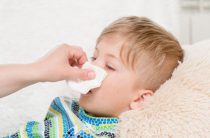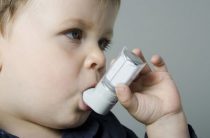Apples are very healthy fruits, they contain a large amount of vitamins, minerals, fiber, fruit acids, sugar, fiber. Vitamin C, which is present in them, strengthens the immune system, potassium ensures the normal functioning of the kidneys, heart, endocrine glands, brain, capillaries, nerve tissues, sodium helps to stabilize blood pressure. And allergy to apples occurs as a consequence of other cross-allergic reactions (for example, allergies to pollen).
Phosphorus, which is present in these fruits, promotes better absorption of calcium. In general, apples have a general positive effect on the body: they improve digestion, increase the acidity of gastric juice, and stimulate appetite.
If you answer the question of whether there is an allergy to apples, you can definitely say yes. But it is also worth considering the fact that apples can be completely different. One option is that you eat fruit that you have grown in your country house, not sprayed with any chemicals. But it’s a completely different matter if an apple bought on the market or in a supermarket, processed with all kinds of means for long-term storage.
People who are prone to allergies, before eating apples, should wash them thoroughly using a brush, dry well and even, if necessary, trim the peel.
To begin with, they try a small piece of an apple, and after an hour, if there is no reaction, eat the whole fruit.
Mechanisms of allergy
The root cause, which determines whether a person will suffer from allergies or not, is the ability of his body to "not take into account" those substances with which he comes into contact every day, which do not pose a danger to his health.
Therefore, we can distinguish a list of reasons why an allergy to apples occurs:
- genetic failures. If relatives have intolerance to this fruit, it can be passed on to the child.
- Cross allergy. When a person suffers from an allergy to birch pollen, or to pears, quince, over time, he may begin to show similar reactions to apples, since their structure is similar.
- In addition to cross-allergy, there is also an individual intolerance to this fruit, due to the presence of a coloring pigment in it - beta-carotene. It is found in large quantities in the peel and in the pulp of apples.
- Lack of quality washing and processing of fruits before eating. The use of a special composition for their storage and transportation, which contains paraffin, which causes allergic reactions.
- Hormonal disorders.
- Chronic infectious diseases.
- Experiences.
- Frequent poisoning.
A person whose body is sensitized to a certain substance will show a protective reaction to it. It will harm tissues and organs.
Given that the same substance will not cause any reaction in a healthy person.
When it enters the body for the first time, antibodies, lymphocytes, are produced to the allergen, which react only to this substance.
When the allergen re-enters the blood or mucous membranes, it will be attacked by antibodies. A side effect of this protection is the production of histamine in large quantities.
As one of the strongest mediators of inflammation, histamine affects many tissues and systems. A rash begins to appear on the skin, bronchospasm occurs and very intense mucus formation, peristalsis and secretion accelerate. Sometimes there is a sharp decrease in blood pressure, the formation of edema, a deterioration in the well-being of a person.
Apple allergy symptoms
Allergy to apples in children can be manifested by any contact with them, but often this happens if they eat whole fruits. Much less often, allergy symptoms are caused by taking juices or jams, jelly, marmalade, jams with the addition of apples. This can be explained by the fact that most of the allergen is contained under the peel, and it is partially destroyed during heat treatment.
For adults, this ailment is not so dangerous, but children under the age of five should use this product in moderation.
The most common symptoms that children have with an apple allergy are:
- rash;
- diarrhea;
- abdominal pain;
- vomit.
They are explained by the fact that an insufficient amount of enzymes is produced in the digestive tract, with the participation of which food is digested in different parts of the gastrointestinal tract.
For babies, eating applesauce often causes diathesis . Many parents have seen manifestations of such an allergy, both in the photo and in real life on their babies. It is characterized by green stools, flatulence. This can only mean one thing, you can’t immediately start feeding a child, you should wait a few months
When the child grows up, the apple allergy may disappear and become more pronounced. But if at this stage his body cannot digest them, it is better not to risk the health of the baby. Without consequences for your health, you can eat baked apples, like compote or sterilized clarified juice.
An allergy to apples is similar in its symptoms to an allergy to other foods, the patient has a manifestation of:
- skin symptoms (allergic rashes, itching, edema, eczema, small urticaria);
- digestive symptoms (nausea, vomiting, digestive disorders, severe abdominal pain accompanied by colic);
- respiratory symptoms (allergic rhinitis, cough, asthma attacks, lacrimation, sneezing).
Note! Symptoms of an allergy to apples in an adult are not significantly different from other manifestations of allergies. Therefore, there is a certain difficulty in making a correct diagnosis, it is difficult to determine the allergen. But when it is determined, you must immediately exclude it from your diet, adjust the hypoallergenic diet for the most effective treatment.
Allergy to apples can also manifest itself in the form of:
Atopic dermatitis, in which severely itchy rashes appear on the face, neck, limbs, torso. After the skin begins to peel off, and if the patient begins to comb it. That is quite possible the formation of pustules.
Quincke's edema, in which the face, hands, feet, genitals swell strongly. A great danger is laryngeal edema, which can provoke suffocation.
Anaphylactic shock, which is a very rare symptom, but also very dangerous. So, the patient experiences a rapid development of shock symptoms - agitation, which is replaced by fainting, a decrease in blood pressure, convulsions.
Allergy diagnostics
To determine if a patient is allergic to apples, one can observe whether there are signs of the disease after he has taken the product and when he did not eat them.
Confirmation of the diagnosis is carried out by the method of skin tests and the detection of antibodies to a particular substance.
Allergy to apples in a pregnant woman
Note! When a pregnant woman has an intolerance to apples, despite the fact that before she could eat them in any quantity, you should not be nervous. Indeed, during pregnancy, a global restructuring occurs in the body, during which the hormonal background and immune status change greatly. Therefore, when she gives birth, everything can fall into place.
But what to do at the moment if a woman already has an allergy? First of all, you need to talk with your obstetrician-gynecologist who observes the pregnancy, according to his recommendations, you may need to make an appointment with an allergist. For the entire duration of pregnancy, it is better to stop eating apples. If you follow a hypoallergenic diet, in the future, allergies should not disturb either mother or baby.
Apple allergy treatment
To recover from this disease, it is worth doing the following:
- Remove this fruit from your menu. If the signs of allergy are not very pronounced, it is allowed to eat apples without peel, apple juice, thermally processed derivative products (jam, jelly).
- Undertake allergen-specific immunotherapy, in which increased amounts of the allergen will be gradually introduced until tolerance is developed.
- Take antihistamines only for acute allergy symptoms.
- Call an ambulance if the patient has the first symptoms of Quincke's edema, or anaphylactic shock.
The appearance of the first symptoms of an allergy to apples in a child should be the reason for contacting an allergist. It is imperative to treat an allergy to apples. Because the substances contained in this fruit that cause a negative immune response can also be found in other foods. After a while, using this approach, not only apples, but many foods will need to be excluded from your diet. It is because of this that it is necessary not only to follow a hypoallergenic diet, but also do not forget about visiting an allergist, passing all the necessary tests, and treating allergies.
Scientists have discovered a method that allows you to get rid of allergies. Swedish specialists have developed an allergenic variety of apples, in which there is no strong provocateur - the substance Mal d1.
You can learn more useful information about apple allergy in children from our consultant.















